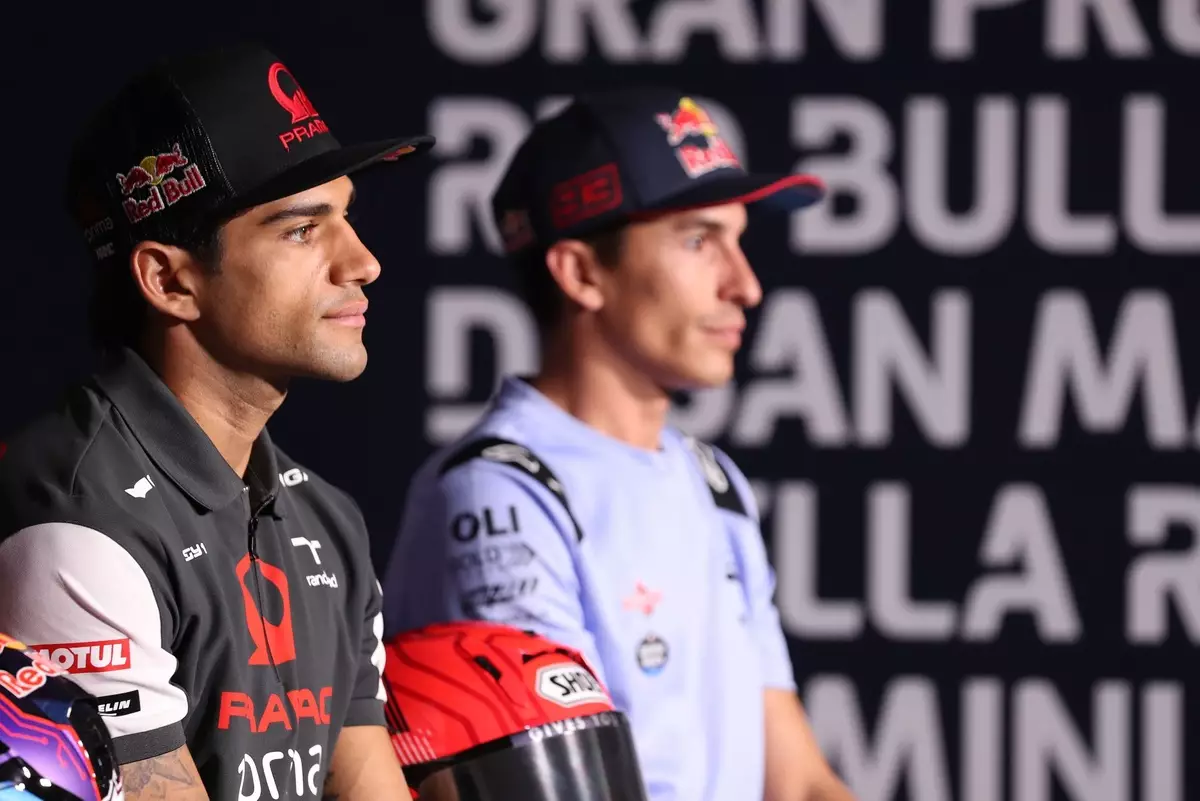Jorge Martin, the reigning MotoGP world champion, finds himself at a crucial juncture as he prepares to make his return to racing after a series of unfortunate injuries. His story, however, is not merely about setbacks; it’s a testimony to the camaraderie that can exist even amid fierce competition. In an exclusive interview with Autosport, Martin opened up about how the encouragement from his rivals, particularly Marc Marquez, has been instrumental in shaping his recovery process. Such bonds in a hyper-competitive sport like MotoGP may seem paradoxical, but they reveal an essential truth: the spirit of mutual respect and empathy fosters resilience.
Despite having sustained injuries from a significant crash during pre-season tests at Sepang, Martin’s resolve has not been shaken. He speaks openly about the dangers of rushing back into action, a lesson learned from observing Marquez’s struggles. Marquez, who endured a protracted recovery after a devastating crash in 2020, advised Martin to take the necessary time to heal. This advice showcases a broader culture within MotoGP, where riders understand that pushing beyond physical limits can lead to more profound consequences.
Strategies in the Face of Adversity
As the 2025 season unfolds, Martin’s pragmatism shines through. With the pressure of defending his championship title dissipating due to his injuries, he has shifted his focus toward personal growth and comfort on the bike rather than immediate wins. “I’m approaching this with a lot of excitement but without the pressure of having to go out and win immediately,” Martin emphasized. This mindset points to an evolution in how athletes approach recovery—not just as a means to an end but as a crucial phase that can enhance their overall performance in the long term.
Such a strategy is particularly relevant given the current state of the Aprilia team, which has not yet showcased the competitive edge necessary for podium finishes this season. By prioritizing a calm and measured return, Martin is aligning his objectives with his physical capabilities and team dynamics. Instead of entering the race with unrealistic expectations, he is keen on accumulating experience which is pivotal as he navigates this challenging phase.
Confronting Past Trauma
One of the most poignant moments in Martin’s interview was his decision to return to the Lleida circuit, the site of his recent training crash. “That crash won’t happen to me again,” he vowed, demonstrating a captivating blend of courage and determination. This approach reflects a psychological technique often used by athletes to conquer fear; by facing the site of his misfortune, Martin disarms his anxiety with resolve and prepares himself for future successes.
Martin’s reflection on the severity of his injuries—sustaining multiple fractures and other complications—illuminates the harsh realities of the sport. It’s not just the physical scars that linger but also the mental resilience needed to overcome such adversity. Acknowledging that this crash was the most challenging of his career thus far speaks volumes about the emotional and physical toll that riders endure.
A Journey Guided by Goals
With the support of his peers and a strategic mindset guiding his return, Martin underscores the importance of having clear objectives. “I need to clearly identify my objective. I’m someone who is driven by goals,” he remarked, revealing that goal-setting remains central to his philosophy. His awareness of not being at 100% capacity is crucial; it reflects a balanced self-assessment that can prevent future injuries and optimize his performance gradually.
In a sports environment often characterized by relentless pressure and competition, Martin’s approach serves as an exemplary model of maturity and realistic ambition. Establishing incremental goals can not only keep motivation alive but also build a stronger foundation for future achievements.
As the anticipation builds for Martin’s return to the racetrack in Qatar, fans and competitors alike can expect not just a rider eager to reclaim his glory but one who embodies resilience, reflection, and a profound understanding of the sport’s physical and mental rigors. It is this holistic approach that may very well define his path forward in MotoGP, making him not just a champion but a beacon of sportsmanship.


Leave a Reply